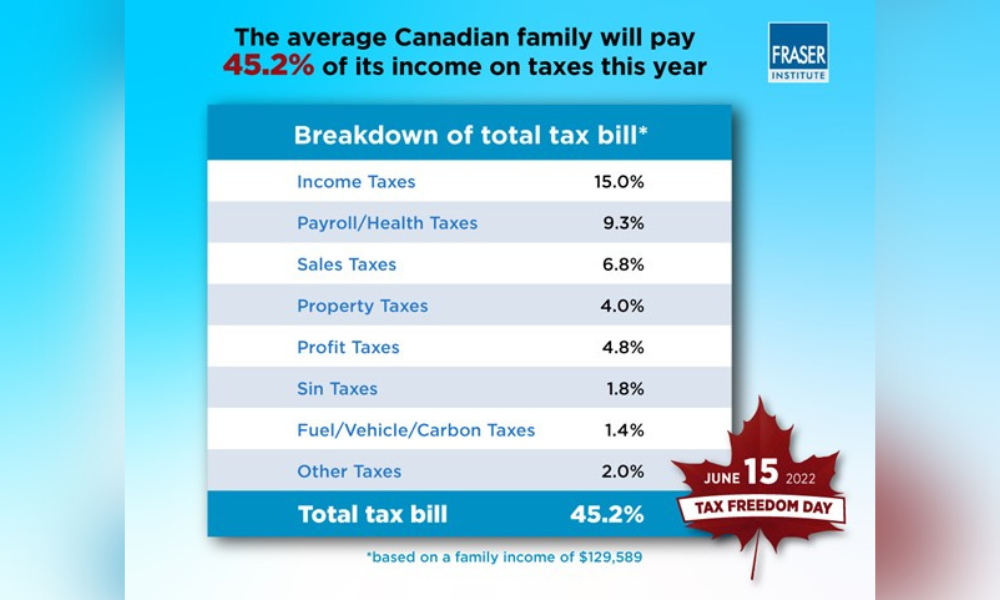It's Tax Freedom Day and it's come four days later than it did last year

Canadians have worked longer in 2022 to pay their taxes than at any time in the past 15 years according to a new study.
The calculation of Tax Freedom Day imagines that we all pay every cent of tax due to various levels of government at the start of the year before we start earning for ourselves.
June 15 is the day in 2022 that we would be free of taxes, four days later than in 2021, a total of 165 days working just to meet our tax obligations.
The Fraser Institute’s analysis reveals that the average two-person Canadian family would pay $58,567 in total taxes in 2022. That’s based on an income of $129,589 and 45.2% going to income taxes, payroll taxes – including the Canada Pension Plan - health taxes, sales taxes (like the GST), property taxes, fuel taxes, carbon taxes, “sin” taxes and more.
Worse to come?
With $86 billion in forecasted federal and provincial deficits to address, there is likelihood that Tax Freedom Day will come even later in the years ahead.
The study also calculated Balanced Budget Tax Freedom Day—the day of the year when the average Canadian finally starts working for themselves if the governments paid for all of this year’s spending with taxes collected this year.
For this year, it will be July 2.
“Tax Freedom Day helps put the total tax burden in perspective, and helps Canadians understand just how much of their money they pay in taxes every year,” said Jake Fuss, associate director of Fiscal Studies at the Fraser Institute. “Canadians need to decide for themselves whether they are getting their money’s worth when it comes to how governments are spending their tax dollars.”
Provincial variations
Tax Freedom Day for each province varies according to the extent of the provincially and locally levied tax burden:
- Manitoba June 4
- Prince Edward Island June 5
- British Columbia June 7
- Saskatchewan June 8
- Alberta June 9
- New Brunswick June 11
- Ontario June 12
- Nova Scotia June 13
- Newfoundland & Labrador June 22
- Quebec July 1



